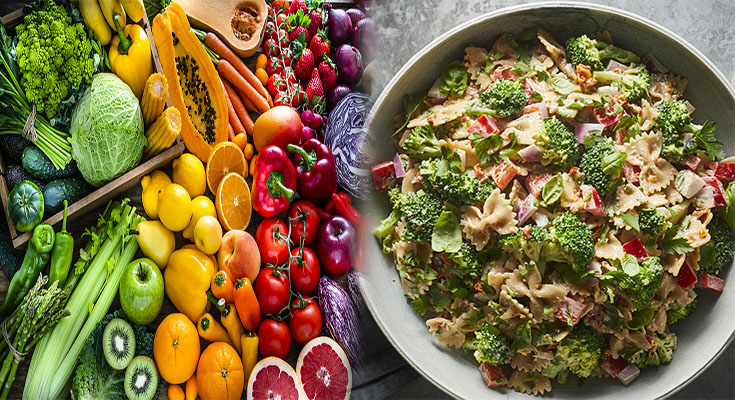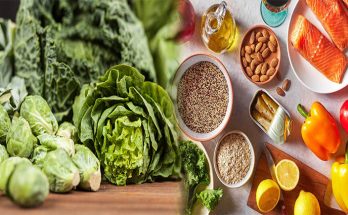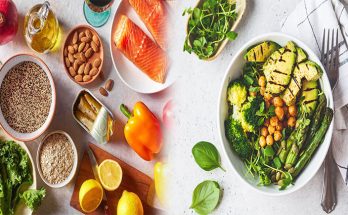February is heart month, and it is important to keep your heart healthy by eating plenty of fruits and vegetables. They are great additions to meals and can even be enjoyed on their own. These foods are packed with fiber and essential nutrients. They also lower your LDL cholesterol and can lower blood pressure and inflammation.
Healthy fats
Fortunately, there are many sources of healthy fats for the heart. Eating foods that are rich in omega-3 fatty acids, such as nuts and seeds, can help keep cholesterol and blood pressure under control, and can help prevent heart disease. The omega- 3s in these foods are usually in the form of short-chain fatty acids. Moreover, a diet rich in leafy green vegetables such as spinach and broccoli is rich in vitamins C and E and also has lots of fiber. In addition, these vegetables are rich in potassium, magnesium, and calcium, which play a role in maintaining blood pressure.
A well-balanced diet is vital to heart health. Eating a variety of fruits and vegetables is essential for keeping the heart healthy. Some of these foods contain heart-healthy fats, such as olive oil and avocado. Other healthy fat sources are fish and various nuts and seeds.
Vitamin C
A recent study shows that people who eat a lot of vitamin C are less likely to develop heart disease. This is because vitamin C helps lower blood cholesterol levels by promoting execration of extra cholesterol in the bile. It also helps prevent oxidation of fats, which can cause them to deposit in arteries. Vitamin C also has antioxidant properties similar to vitamin E, and it increases the fibrinolytic activity of the blood. This may reduce the risk of thrombosis, which is the main cause of heart attack and stroke.
In addition to keeping blood cholesterol levels low, vitamin C also helps restore the antioxidants in the body that fight cell damage that can lead to disease. Furthermore, it helps metabolize protein and absorb iron. A healthy adult needs about 40 milligrams of vitamin C daily. A person can meet this goal by consuming the right kinds of foods. However, it is important to know that too much vitamin C can cause stomach pain and digestive problems.
Fiber
A recent study found that a higher intake of fiber in the diet can lower the risk of developing cardiovascular disease. This benefit comes not only from its ability to lower blood pressure, but also from the fact that it can fill us up, making us eat less. Yet, the research also shows that most people are not getting enough fiber in their diets. This is one reason why it is recommended that we carry fiber-rich snacks with us when we are out and about.
Fiber can be found in many different foods, including whole grains, vegetables, and fruits. Soluble fiber is the kind that is dispersed in water; and insoluble fiber is found in insoluble foods such as whole grains and bran. When fiber is removed, it turns into a viscous gel.
Omega-3 fatty acids
According to research, omega-3 fatty acids found in fruits and vegetables can improve the heart’s function. These acids are thought to help the endothelial lining of the heart. Studies have shown that they can reduce inflammation. They also appear to improve the functions of the heart’s cells.
In addition, ALA found in plant-based foods may also reduce the risk of cardiovascular disease by up to 10%. A recent study has found that plant-based omega-3s are particularly helpful for people who don’t consume fish. The study also found that ALA, or alpha-linolenic acid, may help to lower the risk of coronary heart disease.
Natural sugars
Natural sugars are naturally occurring in food and come in two different forms – fructose and lactose. Fruits and vegetables contain fructose, while dairy products, such as milk and yogurt, have lactose. These sugars are absorbed into the body, where they are broken down into glucose.
Consuming natural sugars in fruits and vegetables has a number of health benefits. They are packaged with other nutrients like fiber and protein and contain disease- fighting phytochemicals that exert anti-inflammatory and antioxidant effects. They also tend to elicit a slower glucose and blood sugar response in the body.
Carbohydrates
The carbohydrate content of fruits and vegetables is not directly related to heart health. Rather, they may be helpful to your health. Generally, a small piece of whole fruit contains 15 grams of carbohydrate, while a half-cup of frozen or canned fruit has approximately the same amount. Fresh berries and melons usually have serving sizes of 3/4 to 1 cup. Fruit juices, on the other hand, may contain as little as a third to half-cup of carbohydrates per serving. Dried fruit also contains little or no carbohydrate and is an excellent substitute for other sources of carbohydrates.
Another study, published in the New England Journal of Medicine, found that a high- glycemic index diet is linked to an increased risk of heart disease and stroke. The researchers analyzed the diets of 130,000 adults to determine the glycemic index and the associated risk of major cardiovascular events. They found that those on high-glycemic index diets were 50% more likely to experience a cardiovascular event than those on low-glycemic index diets. This effect was even more pronounced in participants who were on the highest 20 percent of the glycemic index.
Flavonoids
Flavonoids, which are found in many plant-based foods, may improve your heart’s health. Research has shown that these nutrients improve the function of blood vessels and reduce inflammation. While these benefits aren’t immediate, it’s clear that eating a higher-quality diet that is rich in flavonoids may help you live a healthier life.
One study of 56,000 people in Denmark found that those who consumed the highest amount of flavonoid-rich foods had a 15% lower risk of developing cardiovascular disease or dying of any cause. This was true even after taking into account other factors such as smoking and physical activity. This study concluded that the best way to increase flavonoid intake is to eat a variety of fruits and vegetables.





